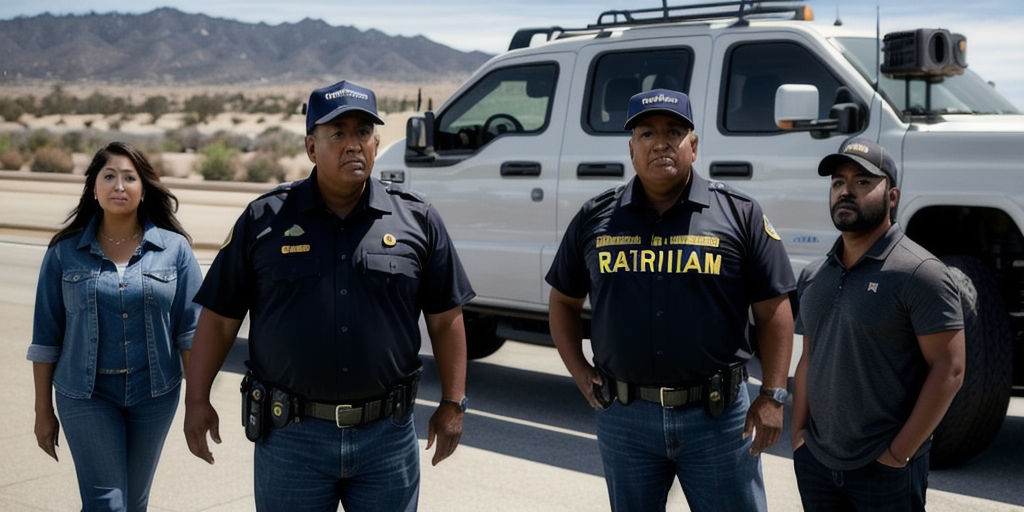
Trump administration ordered to halt indiscriminate immigration stops in California over racial profiling concerns
How did your country report this? Share your view in the comments.
Diverging Reports Breakdown
Trump administration ordered to halt indiscriminate immigration stops in California over racial profiling concerns
A federal judge has ordered the Trump administration to halt indiscriminate immigration stops and arrests in seven California counties, including Los Angeles. Judge Maame E Frimpong on Friday blocked the administration from using what has been called unconstitutional tactics in raids. The order also applies to Ventura county, where busloads of workers were detained on Thursday while the court hearing was under way after federal agents descended on a cannabis farm. Advocates accuse immigration officials of detaining someone based on their race, carrying out warrantless arrests and denying detainees access to legal counsel. Department of Homeland Security assistant secretary Tricia McLaughlin wrote in an email that “any claims that individuals have been ‘targeted’ by law enforcement because of their skin color are disgusting and categorically false”
Judge Maame E Frimpong on Friday blocked the administration from using what has been called unconstitutional tactics in raids after a lawsuit was filed by immigrant advocacy groups last week.
The lawsuit in the US district court has accused the administration of systematically targeting brown-skinned people in southern California during its ongoing immigration crackdown. The plaintiffs include three detained immigrants and two US citizens, one who was held despite showing agents his identification.
The order also applies to Ventura county, where busloads of workers were detained on Thursday while the court hearing was under way after federal agents descended on a cannabis farm, leading to clashes with protesters and multiple injuries.
1:06 Protesters and US federal agents clash during immigration raid at California farm – video
Frimpong also issued a separate order barring the federal government from restricting attorney access at a Los Angeles immigration detention facility.
The judge issued the emergency orders, which are a temporary measure while the lawsuit proceeds, the day after a hearing during which advocacy groups argued that the government was violating the fourth and fifth amendments of the constitution.
She wrote in the order there was a “mountain of evidence” presented in the case that the federal government was committing the violations they were being accused of.
Representing the government, attorney Sean Skedzielewski said there was no evidence that federal immigration agents considered race in their arrests, and that they only considered appearance as part of the “totality of the circumstances”, including prior surveillance and interactions with people in the field.
In some cases, they also operated off “targeted, individualized packages”, he said.
Department of Homeland Security assistant secretary Tricia McLaughlin wrote in an email that “any claims that individuals have been ‘targeted’ by law enforcement because of their skin color are disgusting and categorically FALSE”.
McLaughlin said “enforcement operations are highly targeted, and officers do their due diligence” before making arrests.
Advocates accuse immigration officials of detaining someone based on their race, carrying out warrantless arrests and denying detainees access to legal counsel at a holding facility in downtown LA.
According to the American Civil Liberties Union, the recent wave of immigration enforcement has been driven by an “arbitrary arrest quota” and based on “broad stereotypes based on race or ethnicity”.
ACLU attorney Mohammad Tajsar said Brian Gavidia, one of the US citizens who was detained, was “physically assaulted … for no other reason than he was Latino and working at a tow yard in a predominantly Latin American neighborhood”.
Friday’s order will prevent the government from solely using apparent race or ethnicity, speaking Spanish or English with an accent, presence at a location such as a tow yard or car wash, or someone’s occupation as the basis for reasonable suspicion to stop someone.
